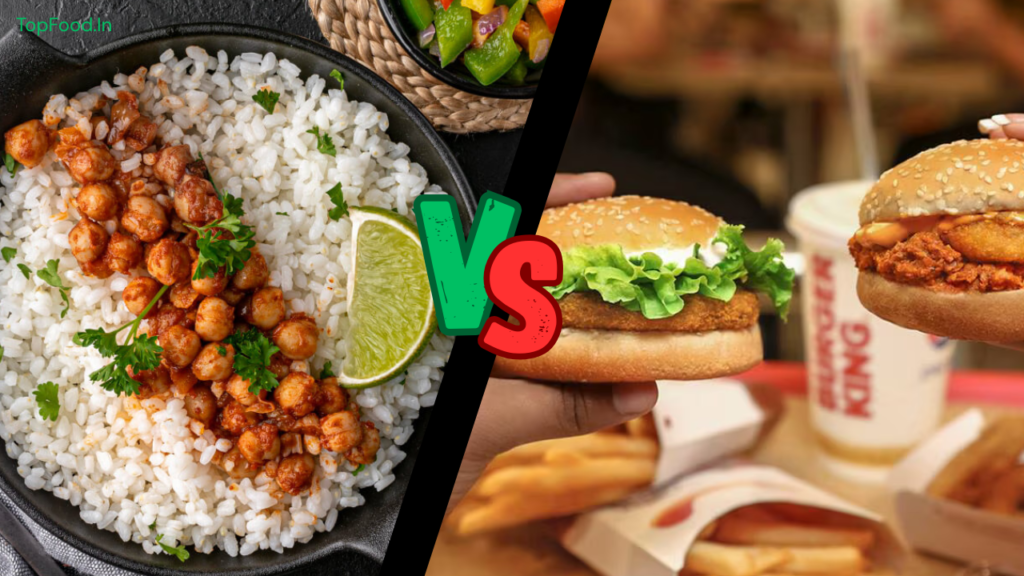Introduction
In today’s fast-paced world, the debate between fast food and home-cooked meals is more relevant than ever. While fast food offers convenience and quick service, home-cooked meals provide better nutrition and long-term health benefits. But which one truly wins? Let’s break it down based on cost, health, taste, and overall impact on daily life.
1. Cost Comparison
Fast Food:
- On the surface, fast food seems affordable, with budget meal deals and combo offers.
- However, the hidden costs include health-related expenses due to excessive calories, preservatives, and unhealthy fats.
Home-Cooked Meals:
- Initially, grocery shopping might seem expensive, but bulk buying and meal planning significantly reduce daily meal costs.
- Cooking at home allows you to prepare multiple servings at a lower price than a single fast food meal.
🏆 Winner: Home-Cooked Meals (Cheaper in the long run)
2. Health & Nutrition
Fast Food:
- High in sodium, unhealthy fats, artificial additives, and sugar.
- Can lead to obesity, diabetes, heart disease, and digestive issues.
- Lacks essential nutrients like fiber, vitamins, and minerals.
Home-Cooked Meals:
- Allows full control over ingredients, ensuring a balanced diet.
- Contains fresh vegetables, lean proteins, and whole grains, supporting a strong immune system and overall well-being.
- Reduces intake of harmful preservatives and excess salt.
🏆 Winner: Home-Cooked Meals (Healthier and more nutritious)
3. Time & Convenience
Fast Food:
- Available instantly at restaurants, drive-thrus, and food delivery apps.
- Ideal for busy professionals, students, and travelers.
Home-Cooked Meals:
- Requires time for preparation, cooking, and cleaning.
- Meal prep strategies like batch cooking and freezing meals can reduce daily cooking time.
🏆 Winner: Fast Food (Best for quick and instant meals)
4. Taste & Customization
Fast Food:
- Designed to be highly flavorful with artificial seasonings and excessive salt.
- Limited customization in terms of ingredients and preparation methods.
Home-Cooked Meals:
- Allows full control over flavors, spice levels, and ingredient choices.
- Healthier cooking methods like steaming, baking, and grilling enhance taste without compromising nutrition.
🏆 Winner: Home-Cooked Meals (Customizable and better quality ingredients)
5. Long-Term Impact on Lifestyle
Fast Food:
- Frequent consumption can lead to lifestyle diseases.
- Less involvement in family bonding as meals are often eaten on the go.
- Higher addiction risk due to sugar, MSG, and artificial flavor enhancers.
Home-Cooked Meals:
- Encourages family bonding, mindful eating, and better eating habits.
- Helps maintain better weight control and digestion.
- Boosts mental well-being by reducing stress associated with poor diet choices.
🏆 Winner: Home-Cooked Meals (Better for long-term health and lifestyle)
Final Verdict: Which One Wins?
- If time and convenience are your top priority → Fast Food wins.
- If cost, health, and long-term well-being matter more → Home-Cooked Meals win.
Conclusion: While fast food offers instant satisfaction, home-cooked meals provide lasting benefits for health, savings, and overall quality of life. Balancing both wisely is the key!




